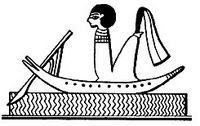Deep spirituality may nurture our ordinary world
Thomas Moore's regular Spirituality & Health magazine column, "Care of the Soul" for January-February 2012, "The Spirituality of the World" is available for online reading. In this column, Moore writes about the works of Thomas More and Teilhard de Chardin. He observes,
"In spirituality, there is often an understandable conflict between material life and lofty vision. Cultivating a spiritual life usually entails a certain restraint in ordinary living: we fast, abstain from sex, withdraw from society, and work too hard, all to increase spiritual awareness. But these practices can give rise to an anti-worldly attitude that sees the body as an obstacle, sex as part of our lower nature, and pleasure as a sign of spiritual degeneration. We end up polarizing spirituality and worldliness."After writing about his own focus on "deep spirit", Moore continues,
"I have come to see a formula at work in contemporary life: spiritual vision helps you see the preciousness of life and live more soulfully, and then, as ancient writers often said, the deep soul connects the spirit with the material world. In other words, a soulful life can go far in creating a worldly spirituality. Understanding the importance of simple pleasures, you live a satisfying worldly life even as you pursue personal spiritual maturity and a more spiritual society."He concludes, "The situation today is so dire that a simple shift from the suspicious desire for purity to a love of life might make for a more spiritually alive planet and a happier, less conflicted world."
"You simply aim too high, become too pure, and get caught in self-denying practices, and then over time become an unworldly, spiritually anxious person. You have to be alert to this problem that weakens the spiritual life — moving in a direction against ordinary pleasures and self-affirmation in the name of virtue or spiritual attainment. The spiritual repression of blessed worldliness usually looks like a good thing, until you reflect on it and see its dangers."



